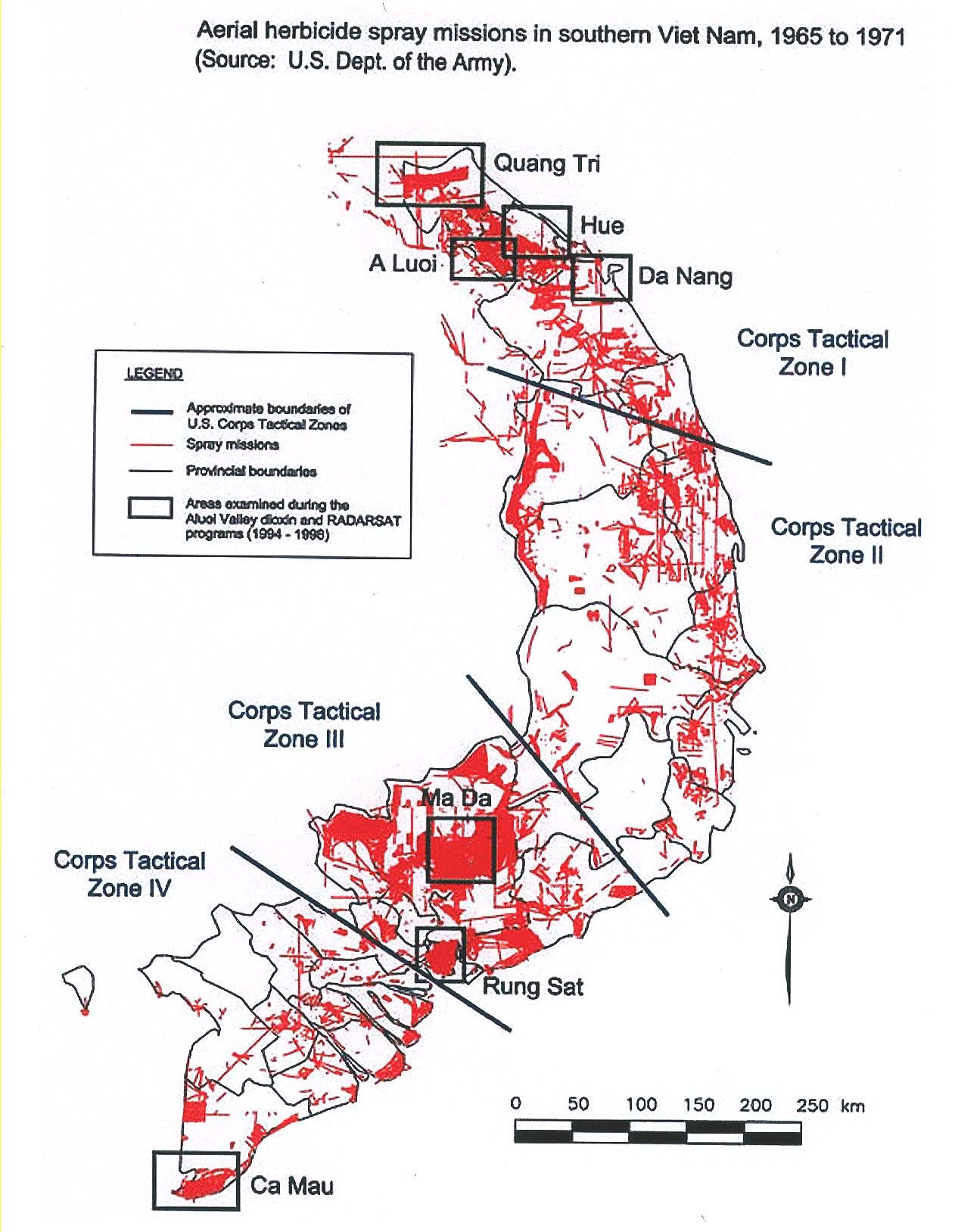SlothfulCobra posted:Conversely, sometimes "breaking the rules" and doing atrocities and war crimes doesn't help the war effort at all despite some people's expectations that more killing in the areas where they're being held back might shift the tide, although it's hard to judge, and sometimes I just have wishful thinking in that direction.
|
|
|
|
|

|
| # ? Jun 3, 2024 12:40 |
|
SlothfulCobra posted:There are some times when there are clear effectiveness reasons to establish rules and play nice by them, I think mainly when winning the war involves managing public opinion, but sometimes it's simple as wanting to not damage the fancy city you're capturing to be able to reap its benefits.
|
|
|
|
Sports and military stuff have a lot of overlapping terminology and concepts I think because while we get mostly clean, sanitized, versions nowadays, they all started out a lot different. Modern lacrosse came from a game played by the Iroquois people, who played it as an activity to train warriors and referred to it as "the little brother of War" among other things. And of course sports are still dangerous today too. It's not uncommon to hear athletes referred to as modern gladiators and things like that. Hell, a hockey player died just a few weeks ago in a minor pro game in England when his neck got cut open by a skate.
|
|
|
SlothfulCobra posted:Conversely, sometimes "breaking the rules" and doing atrocities and war crimes doesn't help the war effort at all despite some people's expectations that more killing in the areas where they're being held back might shift the tide, although it's hard to judge, and sometimes I just have wishful thinking in that direction. Pretty much all the laws of war are "well, if only one side does this they get an advantage, but as soon as the other side starts that's nullified. So all these things do is make the war worse for everybody without changing the outcome one iota, let's agree to never start doing it in the first place" things.
|
|
|
|
|
Gnoman posted:Pretty much all the laws of war are "well, if only one side does this they get an advantage, but as soon as the other side starts that's nullified. So all these things do is make the war worse for everybody without changing the outcome one iota, let's agree to never start doing it in the first place" things. As Nessus points out, a lot of the "laws of war" are more "despite what we might think, doing this gives us no advantage whatsoever." Not because our enemies will start doing it to, but because the action in itself provides no benefit beyond maybe letting a few soldiers vent some frustration. Much like how fascism is not, in fact, an efficient government, doing war badly is not, in fact, a good way to win a war.
|
|
|
|
Despite their obvious kill-tastic powers I don't think the WW1 war gasses have been used in battle other than Iran/Iraq, right? CS/tear gas, yes, but not the others.
|
|
|
|
|
I'm thinking of poison gas in WW1 vs WW2. It was of marginal effectiveness in WW1 but that's not no effectiveness and there were undoubtedly situations in WW2 where it could have created a tactical advantage even if only by forcing the enemy to button-up. Both sides were certain that the moment they used it the other side would start using it too, and keeping the enemy from using it was more important to them than the advantage they could get from using it themselves.
|
|
|
|
The Lone Badger posted:Let's start with small changes. Each team gets one designated Swordsman, who is not permitted to touch the ball themselves. Is this how Jugger started? This reminds me of a Dredd bit where there was a planet populated by 10 warlike races, so they'd war but it was treated like a sport with half time and referees and random weapon sets from other cultures. I wanna say Judge Child.
|
|
|
|
Elissimpark posted:Is this how Jugger started? Praise Nuffle.
|
|
|
|
The Lone Badger posted:I'm thinking of poison gas in WW1 vs WW2. It was of marginal effectiveness in WW1 but that's not no effectiveness and there were undoubtedly situations in WW2 where it could have created a tactical advantage even if only by forcing the enemy to button-up. My understanding of the use of poison gas in war is largely driven by the Bret Devereaux article on them. The tl;dr is that we don't use them because they're not practical weapons against peer opponents. They won't kill your enemies (who will just mask up and hunker down), and while they will deny said enemies freedom of maneuver, they also deny you freedom of maneuver, which is kind of important in maneuver-based warfare. Plus they're hard to manufacture, dangerous to stockpile, and difficult to deploy in effective quantities. It's simply vastly more effective to replace a given quantity of chemical weapons with a given quantity of traditional explosives, so that's what both sides in WW2 did.
|
|
|
|
But then why do the major powers develop and stockpile chemical weapons? Having them and not using them was a thing in both WW2 and the Cold War. (See: S.S. John Harvey for example).
|
|
|
The Lone Badger posted:But then why do the major powers develop and stockpile chemical weapons? Having them and not using them was a thing in both WW2 and the Cold War. (See: S.S. John Harvey for example). "Well we'll certainly never use them first, but if those slimy, duplicitous other guys use them first, we drat well better be able to respond in kind!"
|
|
|
|
|
The Lone Badger posted:But then why do the major powers develop and stockpile chemical weapons? Having them and not using them was a thing in both WW2 and the Cold War. (See: S.S. John Harvey for example). By having them you are forcing your potential adversaries to waste resources trying to counter them?
|
|
|
|
Same category of calculus as a fleet in being or nuclear deterrent. Having the weapons forces the enemy to calculate the likelihood that you'll use them in any context, typically with a moderating effect.
|
|
|
|
Fleet in being was the exact concept I was thinking of, but it slipped my mind. Either way it's all about opportunity cost. Any time, effort, resources, etc. spent preparing for NBC attacks, is NOT being spent elsewhere.
|
|
|
|
The Lone Badger posted:But then why do the major powers develop and stockpile chemical weapons? Having them and not using them was a thing in both WW2 and the Cold War. (See: S.S. John Harvey for example). They mostly don't? The US has dismantled them, Russia has mostly? dismantled them, assassination agents aside, and I don't believe there are allegations of China trying to develop new ones for battlefield use.
|
|
|
|
We did keep our stockpile for a long, long time. We agreed to get rid of them in 1997, and only finished it in uh...july. I think landmines are the thing with the biggest disparity between so much of the world agreeing that they're so bad for civilization in general and nobody should ever use them because they leave so much destruction even after the fighting's done, but they're just so useful for warfare that anyone ready to do a serious war just doesn't agree to ban them.
|
|
|
|
The Lone Badger posted:But then why do the major powers develop and stockpile chemical weapons? Having them and not using them was a thing in both WW2 and the Cold War. (See: S.S. John Harvey for example). I know we're mostly talking about stuff like mustard gas and sarin, but we did use a hell of a lot of a different kind of chemical weapon:  Which has had disastrous human and environmental consequences
|
|
|
|
Cessna posted:Just go to "sudden death" instead of completely changing what is happening. They actually had "sudden death"/"golden goal" rules at one point in different knock out tournaments in football and funnily enough it lead to similar situation you brought up about competitive epee. Counter attacks are extremely important in football, so much so that some teams build their whole strategy around it. When there's a sudden death, it means that a single well executed counter attack can decide the whole game and waiting for counter attack opportunities while "parking the bus" is easier than attacking against this low defense. So this makes doing normal methodical attack play much more riskier because any mistake against well executed defense can now cost you the game. And being gassed in extra time means that your team will be making more mistakes. So sudden death lead to very passive and defensive play on both sides and I think in the end it made penalty shootouts actually even more common than with ordinary extra time where there was less risk in normal aggressive play. In the end they've removed golden goal rule from most knock out tournaments. Goes to show how even small changes to rules can have unintended game altering consequences. To tie this back to military history, I've always pondered how things like Ottawa treaty against infantry mines might affect the overall approach to tactics. I know that Finnish defense force built much of their posture around mines, and Finland joining the Ottawa treaty is still a sore point among many people. I know that as a consequence we got claymore mines that are allowed because in theory they are command detonated instead of passive.
|
|
|
SlothfulCobra posted:We did keep our stockpile for a long, long time. We agreed to get rid of them in 1997, and only finished it in uh...july. That delay had more to do with environmentalists objecting to the older "just dump them in the ocean" or "burn them in an open fire" methods of disposal than anything else. It doesn't mean that anybody wanted the things around. The US stopped making them in 1969 - Nixon unilaterally banned production of chemical weapons and ordered all US bioweapons destroyed.
|
|
|
|
|
What would Agent Orange be classified as in this context? I guess it was not a chemical weapon in a sense of using it to directly kill the enemy, but USA used shitload of it as part of herbicidal warfare so it was still a chemical and a weapon...
|
|
|
Glah posted:What would Agent Orange be classified as in this context? I guess it was not a chemical weapon in a sense of using it to directly kill the enemy, but USA used shitload of it as part of herbicidal warfare so it was still a chemical and a weapon...
|
|
|
|
|
Nessus posted:Despite their obvious kill-tastic powers I don't think the WW1 war gasses have been used in battle other than Iran/Iraq, right? CS/tear gas, yes, but not the others. wikipedia has this to say about the use of mustard gas after ww1:
|
|
|
|
I've been thinking about wargames and words and I’d like to hear t'all's thoughts. In miniature wargames make a distinction between regular movement around the board, and charging into hand to hand combat. On the one hand this makes intuitive sense, but on the other, it would be neater design to only have one kind of movement that you’d use whether you’re moving to contact or not. Anyway, this isn’t TG. The question is, are there good recorded instances of soldiers moving into hand to hand combat without charging? That is, is "charging” just the word we use for "moving to hand to hand" and that's just best done as fast as possible, or can we make a distinction between different ways to do that move and charging is only one? It's a muddled question but I hope you catch my drift.
|
|
|
|
Siivola posted:Anyway, this isn’t TG. The question is, are there good recorded instances of soldiers moving into hand to hand combat without charging? That is, is "charging” just the word we use for "moving to hand to hand" and that's just best done as fast as possible, or can we make a distinction between different ways to do that move and charging is only one? There are definitely instances recorded of people charging too much and being very gassed when arriving. Not sure why I'm thinking about Anatolia but... Is standing still waiting for the other guy counted as moving to hand to hand and not charging? Could probably find a lot of that. Others with more knowledge than me will probably chime in but my guess is: A lot.
|
|
|
|
No, not moving as the enemy comes at you doesn't count as moving.
|
|
|
|
Siivola posted:I've been thinking about wargames and words and I’d like to hear t'all's thoughts. In miniature wargames make a distinction between regular movement around the board, and charging into hand to hand combat. On the one hand this makes intuitive sense, but on the other, it would be neater design to only have one kind of movement that you’d use whether you’re moving to contact or not. If two groups of pikemen are engaging with each other, they really, really don't want to run at each other.
|
|
|
|
I understand the line of reasoning for Agent Orange (Jungle getting in your way? Destroy the jungle), even though that's terrible. Did it actually benefit the war effort much tactically? Probably didn't win any hearts and minds.
|
|
|
|
Siivola posted:Anyway, this isn’t TG. The question is, are there good recorded instances of soldiers moving into hand to hand combat without charging? That is, is "charging” just the word we use for "moving to hand to hand" and that's just best done as fast as possible, or can we make a distinction between different ways to do that move and charging is only one? My understanding is that a charge isn't generally actually running. It's a brisk walk. You want to stay in formation, and you don't want everyone to be tired by the time they make contact.
|
|
|
|
Nessus posted:Generally doing atrocities to a population seems to just harden its resolve, which you'd think at this point various offensive parties would have learned, if only for pragmatic reasons. It seems to be one of those platonic ideal Bad Ideas which just keeps recurring to people, though. I think the real problem there is that people who do mass slaughter/war crimes aren't really doing them out of military effectiveness anyway (even though they try to wave that idea around as an excuse), but basically desire to hurt the "enemy", which they define very widely. The cruelty, as they say, is the point. The retaliatory response that results is just assumed as something the "evil opponent" was gonna do anyway, or else the original war crime doer is too sociopathic to think past their own hate and doesn't really care about future consequences. Sometimes you get people dragged into that behavior out of some desperate need to look like they're somehow hurting the enemy when regular tactics don't feel like they're working, but more often all the arguments really seem to boil down to "let's get those (insert racial slur)s" and everything else is just sophistry from all I can ever see. So pointing out that stuff doesn't work doesn't help, because that's not ever the real reason they're doing them, just the excuse.
|
|
|
|
Rules affect the strategy of a game, and every wargame has some odd quirks in how it simulates war. A very common one in video games is that ranged units can defeat the enemy in detail by ordering everyone to fire at the same enemy, and then move on to the next one after that enemy's HP is depleted, and so on. People who get very good at a particular game will start to apply those quirks strategically. There's the famous example of a naval wargame where equipment cost resource points, but men didn't, so one player won a tournament with a navy of a million rowboats each equipped with a single missile.
|
|
|
|
Isn't the 'charge move that's exactly as long as a fast/forced march' a quirk of GW games and imitators? I don't remember that exact rules quirk as common in historical miniatures games, but I've mostly only watched historical minis, never really been into them. InAndOutBrennan posted:There are definitely instances recorded of people charging too much and being very gassed when arriving. Not sure why I'm thinking about Anatolia but... I'd recommend using a different slang word for 'tired' when there's a discussion of chemical weapons on the same page, this actually confused me for a minute!
|
|
|
|
In WWI poison gas was used a lot, even after the initial subpar results, as a filling for artillery shells in suppression missions. In particular counterbattery fire using poison gas was effective because forcing artillery crew to put on their gasmasks meant they were going to be firing a bunch less shells. Using vesicants like mustard gas becomes a lot less appealing in maneuver warfare if you have to drive over the area you just plastered with horrible chemical poo poo.
|
|
|
|
Presumably gasses could have been used to horrible effect in strategic bombing.
|
|
|
|
NBC stuff in general seems like it's mostly good for killing civilians rather than armies, if only because it's easier to equip an army with countermeasures. obvious exception for an actual nuclear bomb, but even then buttoned up tanks and reinforced bunkers make the outskirts of a blast more survivable.
|
|
|
|
Nessus posted:Generally doing atrocities to a population seems to just harden its resolve, which you'd think at this point various offensive parties would have learned, if only for pragmatic reasons. It seems to be one of those platonic ideal Bad Ideas which just keeps recurring to people, though. I don’t know if this is such a universal rule. Maybe it’s more applicable to modern periods but there seem to have been pretty effective atrocity-based campaigns historically, at least in that by terrorizing your first victim you make some subsequent ones a lot more willing to capitulate before it comes to that.
|
|
|
|
Chamale posted:There's the famous example of a naval wargame where equipment cost resource points, but men didn't, so one player won a tournament with a navy of a million rowboats each equipped with a single missile. It was space navies. And the million rowboat strategy was developed by an AI. https://www.therpgsite.com/media-inspiration/strategy-unusual-tactics-traveller-trillion-credit-squadron/
|
|
|
|
Koramei posted:I don’t know if this is such a universal rule. Maybe it’s more applicable to modern periods but there seem to have been pretty effective atrocity-based campaigns historically, at least in that by terrorizing your first victim you make some subsequent ones a lot more willing to capitulate before it comes to that. Is that the "same" population, or were they effectively doing atrocities to one population to scare the other. Wouldn't that be more analogous to how the Blitz affected idk Crete rather than the UK? I don't have a horse in this fight and am just playing with the hypothesis though.
|
|
|
|
Maybe the atrocities of older time periods were proportionately more devastating given the smaller population?
|
|
|
|

|
| # ? Jun 3, 2024 12:40 |
|
Resolve doesn't save you from atrocities. Like if I realized that my kitchen was on fire, I can't just decide to be stoic in the face of flames unless I have an extinguisher or some other means of fighting the fire.
|
|
|
















































